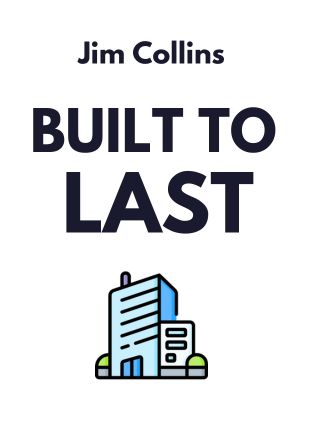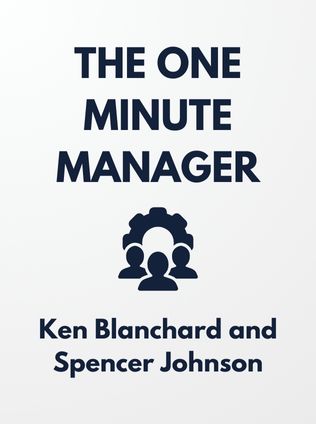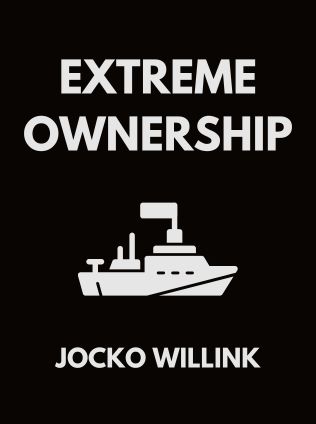
Built to Last
Successful Habits of Visionary Companies
By Jim Collins,
Published 10/1994
About the Authors
Jim Collins is a highly regarded author, speaker, and consultant focused on the study of enduring great companies. Collins, a former faculty member at Stanford University Graduate School of Business, has authored or co-authored six books that have sold in total more than ten million copies worldwide. His works include the bestselling Good to Great and How the Mighty Fall. He is known for his deep insights into how companies grow, scale, and sustain success over long periods.
Jerry I. Porras is the Lane Professor of Organizational Behavior and Change, Emeritus, at Stanford University Graduate School of Business. Porras has devoted his academic career to researching and teaching how to lead and manage large corporations and organizations effectively. He co-authored Built to Last with Jim Collins, contributing his extensive expertise in organizational change and behavior.
Main Idea
Built to Last: Successful Habits of Visionary Companies explores the fundamental principles that have allowed a select group of visionary companies to achieve enduring success. The book is the result of a six-year research project that studied eighteen extraordinary companies, comparing them to their less successful counterparts. Collins and Porras reveal the underlying factors that contribute to the long-term prosperity of these visionary organizations. The central thesis is that visionary companies are not reliant on a single, charismatic leader or a brilliant product; instead, they are built on a strong foundation of core values and purpose that guide their actions and decisions.
Table of Contents
- Introduction
- The Best of the Best
- Clock Building, Not Time Telling
- More Than Profits
- Preserve the Core/Stimulate Progress
- Big Hairy Audacious Goals
- Cult-Like Cultures
- Try a Lot of Stuff and Keep What Works
- Home-Grown Management
- Good Enough Never Is
- The End of the Beginning
- Building the Vision
The Best of the Best
The authors began their research by identifying a set of "visionary companies," organizations that have established themselves as leaders in their respective industries and have outperformed the general market. These companies, such as Ford, Sony, Procter & Gamble, Merck, Motorola, and Johnson & Johnson, were not only successful but had also stood the test of time, with an average founding date of 1897.
"Visionary companies are premier institutions - the crown jewels - in their industries, widely admired and have made an indelible imprint on the world." - Jim Collins and Jerry I. Porras
These companies were chosen based on their impact, longevity, and stock performance. The goal was to uncover the core principles that have allowed these companies to sustain their success over decades.
Clock Building, Not Time Telling
One of the key insights from the book is the concept of "clock building, not time telling." This idea emphasizes that visionary companies focus on building an enduring organization rather than relying on a single great idea or a charismatic leader. The metaphor of clock building represents the creation of a robust and lasting institution that can continue to thrive even after the original leaders are gone.
"Having a great idea or being a charismatic visionary leader is 'time telling.' Building a company that can prosper far beyond the presence of any single leader and through multiple product life cycles is 'clock building.'" - Jim Collins and Jerry I. Porras
this principle in action include Hewlett-Packard (HP) and Sony. William Hewlett and David Packard started HP with no specific product in mind, focusing instead on creating a company that could generate innovative products over time. Similarly, Sony's founders, Masaru Ibuka and Akio Morita, began their company without a clear product idea but built a company capable of producing groundbreaking electronics.
More Than Profits
Visionary companies are driven by a purpose beyond just making money. While profitability is essential, it is not the sole focus. These companies have core ideologies that guide their actions and decisions, often putting values and purpose ahead of short-term financial gains.
Sign up for FREE and get access to 1,400+ books summaries.
You May Also Like
The Lean Startup
How Today's Entrepreneurs Use Continuous Innovation to Create Radically Successful Businesses
By Eric RiesWho Moved My Cheese?
An Amazing Way to Deal with Change in Your Work and in Your Life
By Spencer Johnson, M.D.Make Your Bed
Little Things That Can Change Your Life...And Maybe the World
By William H. McRavenThe Ride of a Lifetime
Lessons Learned from 15 Years as CEO of the Walt Disney Company
By Robert IgerThe Hard Thing About Hard Things
Building a Business When There Are No Easy Answers
By Ben Horowitz



















